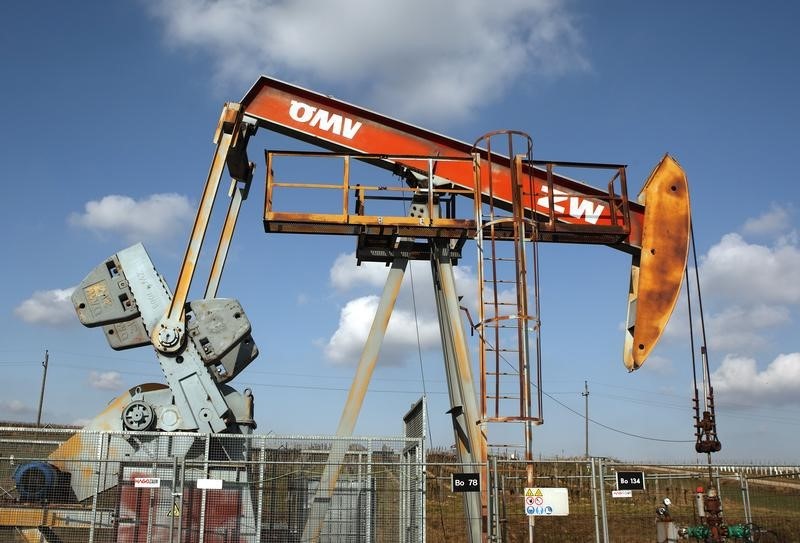By Roslan Khasawneh
SINGAPORE (Reuters) - Crude oil prices were unchanged on Thursday, supported by a fall in U.S. crude inventories after 10 straight weeks of builds and a weaker dollar but a global oversupply still dominates the broader market.
U.S. crude futures (CLc1) were at $37.43 per barrel at 0631 GMT, up 27 cents from their last settlement, but still not far off this week's seven-year lows below $37 per barrel. Prices are down over 11 percent since the beginning of December.
Internationally traded Brent futures (LCOc1) were at $40.54 a barrel, up 43 cents.
Crude inventories
Along with signs of dipping U.S. production, oil prices were also supported by a weaker dollar making the world most traded commodity more affordable to importers.
There were signs of more demand from China, the world's second-biggest oil user. Vehicle sales were up 20 percent in November from a year earlier to 2.5 million vehicles, the China Association of Automobile Manufacturers said at a briefing in Beijing.
Simultaneously, however, EIA data also showed that U.S. distillate stockpiles rose by 5 million barrels, twice the expected increase and the sharpest increase since January.
In Europe, refineries increased their oil intake in November by 4 percent from a year earlier leading to a rise of more than 10 percent in middle distillates stocks which include gasoil and diesel, according to industry monitor Euroilstock.
Between 0.5 million and 2 million barrels of crude oil are being produced in excess of demand every day, creating a glut that has pulled down prices by almost two-thirds since 2014. The excess supply is being pushed into storage and threatening to fill up the existing facilities
"Oil markets are likely to run out of onshore crude storage in 1Q16," PIRA Energy said this week.
Despite an expected fall in U.S. production next year, BMI Research said on Thursday that global output was forecast to rise by 500,000 barrels per day in 2016.
"In particular, we see potential for a temporary undershoot by prices to 2008 financial crisis lows around $36 per barrel for Brent," BMI said on Thursday.
